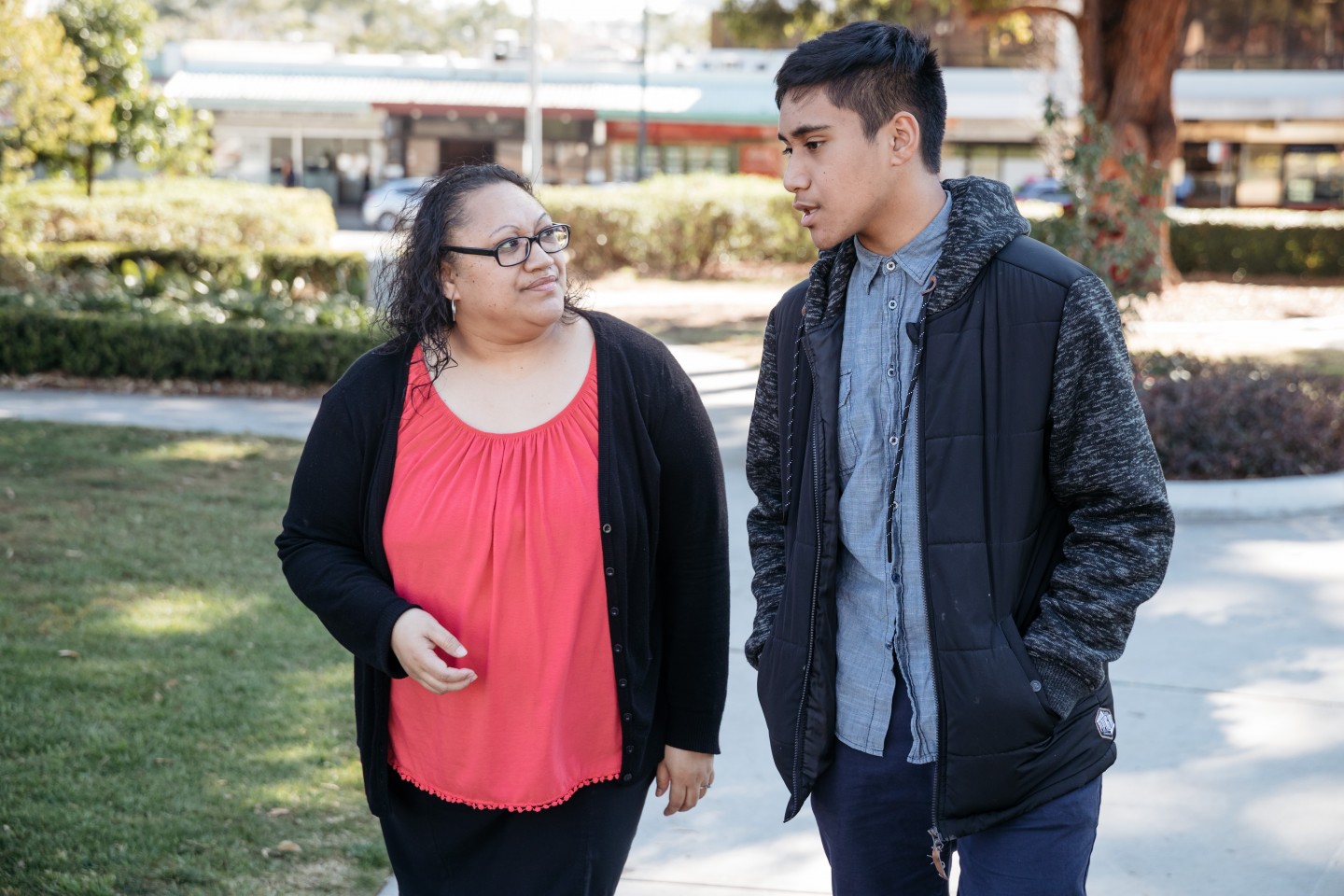Caring for yourself is not only important for you but also models healthy habits for the young person you are supporting. Practising self-care can also enhance your capacity to effectively care for your young person.
In plane travel, passengers are advised, in the event of an emergency, to apply the oxygen mask to themselves first so that they can assist a fellow passenger.
At headspace, family is defined uniquely by each young person. Family is an integral part of a young person’s circle of care. Family and other caregivers – whether by birth, choice or circumstance – hold a significant role in supporting a young person by fostering a sense of belonging and connection through their shared experience.
Looking after yourself is not selfish
Family can experience poor physical health, social isolation, anxiety, depression and financial loss because of having a caring role. You might be juggling many competing needs and feel pulled in different directions. In addition to caring for a young person who is experiencing mental health challenges, you may be working, taking care of other family members and maintaining a household. Family supporting their young person often feel they are being selfish if they attend to their own needs and can end up not looking after themselves.
Signs that your support role is impacting your wellbeing
- Physical – tiredness, body aches, weight gain or loss, high blood pressure or other health challenges
- Emotional – anxiety, sadness, teary, ‘short fuse’
- Self-blame – the question “What did I do wrong?” or “I’m not doing enough”
- Work life – losing focus, needing to take time off caring for young person
- Changed family relationships – withdrawal, tension, or ‘walking on eggshells’
- Disturbed sleep - not getting to sleep or waking in the night
What can I do?
Share the responsibility
You don’t have to do it alone. Support your young person to seek professional help if this is what they need. If possible, share the responsibility of supporting your young person with others. If not your immediate family maybe there are people in your extended network of family and friends who can help. The saying “it takes a village to raise a child” is about recognising that a range of people can play significant roles in caring fora young person.
Share your experience with a supportive friend or family member but remember, you can always seek professional support if needed.
Accept care from others
Remember, your circle of family and friends is crucial to your own wellbeing. Identify the support people who care about your young person and you. Work out who you trust to talk with openly and honestly, knowing they won’t judge or tell you what you should do. It can be helpful to talk with others who understand and have had similar experiences.
Being strong does not mean that you can’t accept small acts of kindness or offers of support. It’s OK to receive from others who want to give to you. A gift that gives you ‘time out’ or an opportunity to enjoy something you love can allow you to feel restored during a tough time and give you a chance to ‘reset’ and have more energy and a fresh perspective.
Don’t let go of what grounds you
Sometimes caring for someone with mental health challenges can sap your resources and might lead to you giving up things that matter to you. It’s OK to find space for activities or people that offer meaning, connection, fulfilment or just fun. It may be exercise, coffee with a friend, a hobby or having time on your own.
Participating in activities, no matter how small, that bring lightness or joy, will nurture your own mental health and wellbeing and sustain you both in the day-to-day and long term.
What lifts your spirit or gives you energy? Pets, the beach, running, singing, connecting with nature, meditation?
Be kind to yourself
Being realistic and having compassion for yourself is important, especially if the self-blame is ‘kicking in’ or if the expectations of yourself are too high. Consider what it would be like if you talked to yourself as you would talk to a friend in the same situation. You might tell a friend to not be so hard on themselves and encourage them by recognising their efforts and strengths Self talk that is positive and encouraging can help with accepting that you are doing your best and not responsible for the challenges that your young person is facing.
Be informed
Supporting a young person who is struggling with mental health challenges can create worry and a huge feeling of responsibility. Learning about mental health and the impact on young people can give you knowledge, skills and optimism. This knowledge will equip you with the tools to support your young person.
Usually, early intervention in mental health care and connections with family and friends leads to good outcomes for young people. Knowledge of this can give you hope that your young person will get through a difficult time.
Where can I get help?
There are a range of support options available for family:
- Talk to your local headspace centre, school, council or community health centre to see if they run any parent information sessions or support groups.
- Access support or join an online group chat with other parents and family.
- Access support for your role supporting a young person experiencing mental health challenges via Carers Gateway
The headspace Content Reference Group oversee and approve resources made available on this website.
Last reviewed September 2024.
Get professional support
If you feel you need help there are a range of ways we can support you.


